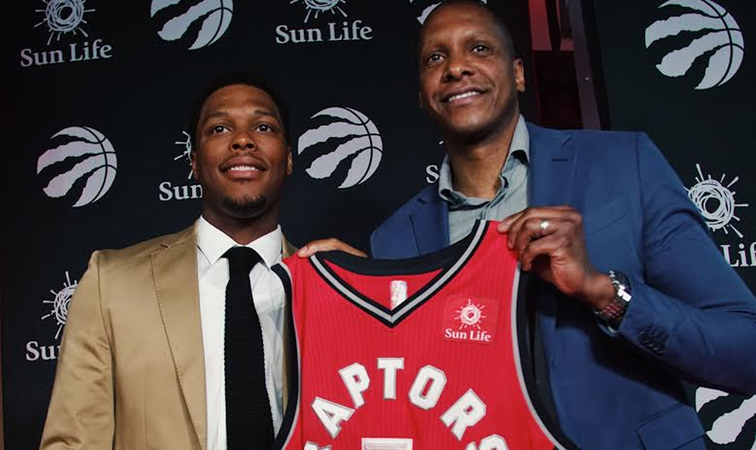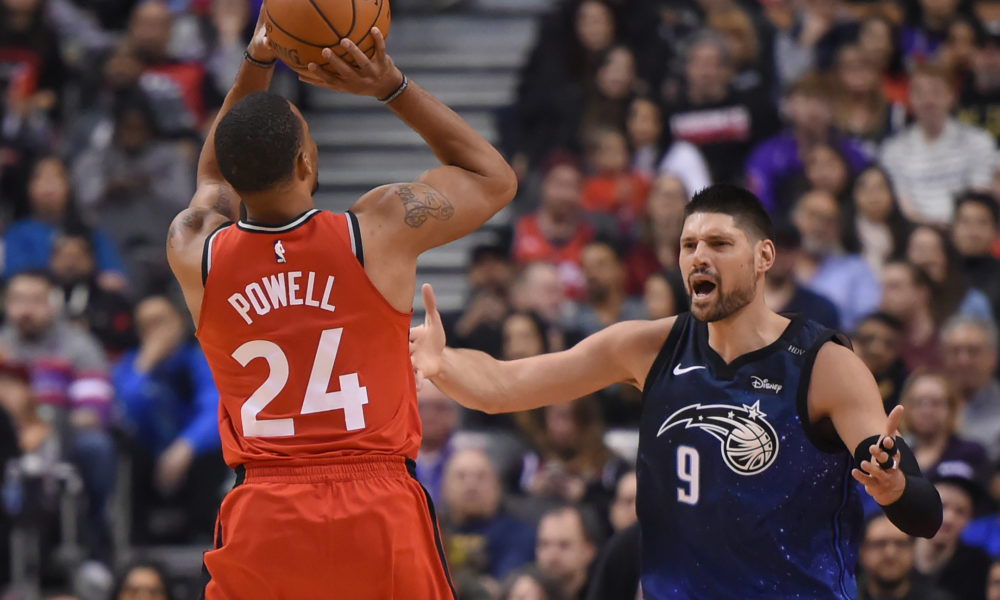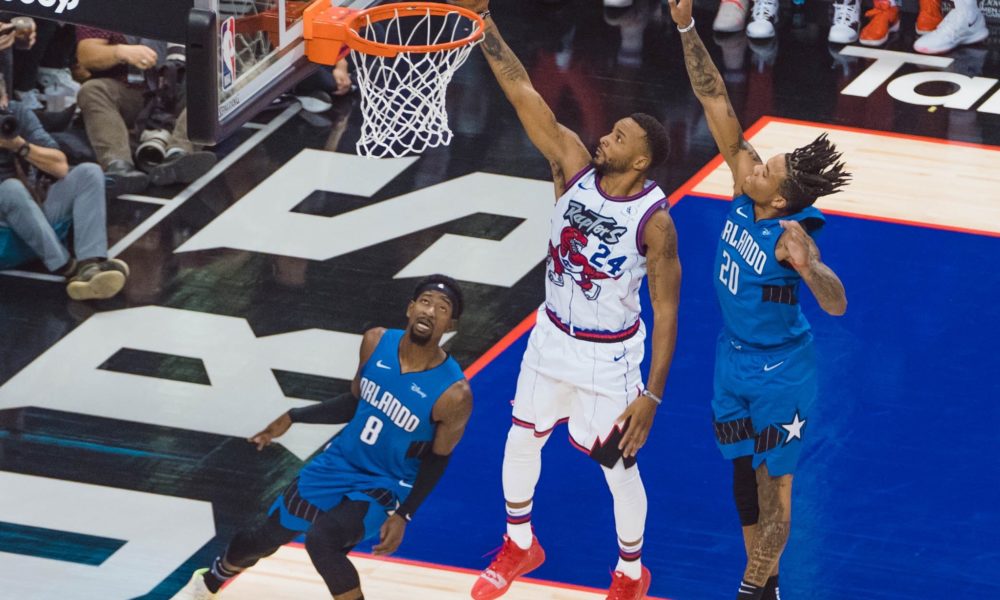It seems like every Raptors column I write these days begins with Masai Ujiri. I feel bad, honestly, because it’s the players that spend countless hours training to play basketball at a high level and sacrifice their bodies doing so, not the executive walking around on his Blackberry. But it’s also not a coincidence that since Ujiri took over the Raptors in 2013, things have changed, and the franchise has done remarkably well.
After missing the playoffs for five straight seasons between 2008 and 2013, the Raptors are now tied for the third-longest active playoff streak in the NBA at six seasons, commencing the year Ujiri took over and culminating in their first championship last season. They have been arguably the best team in the league at developing talent while simultaneously winning, and it is due to an all-around approach that involves their G League team the Raptors 905, a smart front office that brings in high IQ players that work hard, veteran leadership starting with Kyle Lowry, a transparent coaching staff that works with players to put them in the best place to succeed, and a movement-oriented system that gets everyone involved. Raptors like Fred VanVleet, Norman Powell, OG Anunoby, and Pascal Siakam have developed in a healthy culture that prioritizes development while winning, taking incremental steps forward each season to become the players they are today.
Tuesday night’s NBA season-opening win against the New Orleans Pelicans was a win for organizational culture above all else: the team showcased its homegrown star power, veterans like Lowry and Marc Gasol contributed in ways that don’t necessarily show up on the score sheet (like always), they had unlikely contributors like undrafted guard Terrance Davis, and continuity with a core group that knows how to play together. The Raptors aren’t always going to be the most talented team on the floor this season, but they will always play hard, know their roles, and play “the right brand of basketball.”
One thing that stood out over the offseason was the discrepancy in opinion between Americans and locals in regard to how good the Raptors will be this season without Kawhi Leonard and Danny Green. American basketball fans and media — according to NBA Twitter, of course — seem to be very low on the Raptors, pegging them as a bubble-playoff team depending on if they trade their veterans or not. Canadian fans and media, on the other hand, are much higher on the Raptors, picking them to finish somewhere around the fourth seed in the Eastern Conference. The more I think about it, the more it feels like the reason for this discrepancy has to do with the different weight given to the organizational competency and culture the Raptors have developed. American fans and media haven’t been around the Raptors very much, and are likely underrating just how good of an organization they have become. Local fans and media, on the other hand, understand that as long as Ujiri is in charge, Nurse is behind the bench, and a solid group of veterans and young players remain on the roster, the Raptors are going to be good.
Good is one thing, great is another. Without Leonard, the Raptors don’t have a bonafide superstar. Don’t get me wrong, Siakam is a beast, but he’s not a top-10 player and has never been the No. 1 option. That will matter a lot in the playoffs when the Philadelphia 76ers with Joel Embiid and Milwaukee Bucks with Giannis Antetenkounpo will have the best player on the floor in a series against the Raptors. But in the regular season, the Raptors can still be great.
Everyone understands that certain organizations are run better than others, but a look into NBA history teaches us that organizational stability can play a big role in having a consistently good on-court product. Look at the San Antonio Spurs, for example, who have been to the playoffs for 22 straight seasons thanks to dependable ownership, strong management who has been able to draft well and find international players, world-class coaching, and star players. There is only one Spurs, though, and not every team gets to draft David Robinson and Tim Duncan. Still, the Spurs have proven that organizational stability matters in the NBA and winning cultures can be developed.
The Raptors hope to replicate that format, but they will need star players to do so. After losing DeMar DeRozan and Kawhi Leonard in back-to-back summers, the Raptors will look drastically different this season with Siakam as the new No. 1 option. Siakam’s all-around game is already elite and the Raptors, who locked Siakam up until 2023-24, will hope he continues to develop into the best player on a championship team. While it would be great for Siakam to take a step as a shooter (mid-range and 3-point), it’s also important he improves as a defender, because he has the size and athleticism to be an All-Defensive player if he puts his mind to it. Siakam doesn’t need to guard the opponent’s best player — that is Anunoby’s role — but if he can replicate 75 percent of what Antetokounmpo does on defence, acting as a safety-like help defender and rim protector with his length and athleticism, the Raptors can be an elite defensive team this season.
https://www.youtube.com/watch?v=R4U9kx_M7M4
For the Raptors to be great, they are also going to need a solid bench, which is the biggest question heading into the season. Nurse clearly doesn’t trust his bench just yet, but it will be a big test for Nurse and the front office — who brought in players like Rondae Hollis-Jefferson, Stanley Johnson, and Matt Thomas in the offseason — to find roles for these players and create a dependable rotation.
In fact, this entire season will be a big test for the Raptors organization. It’s easy to be good when you have arguably the best player in the entire league, but this season represents new challenges and questions. Is Nurse truly an elite coach and can he get the most out of this team? Was Ujiri right to bet on Siakam with a four-year max contract instead of waiting until next summer to pay his young star? Are the new bench pieces going to fit into the system and help the team win?
We will get the answers as the season progresses. But the Raptors have consistently outperformed expectations and are one of the most stable and competent franchises in the NBA. Don’t be surprised if they do it again.



